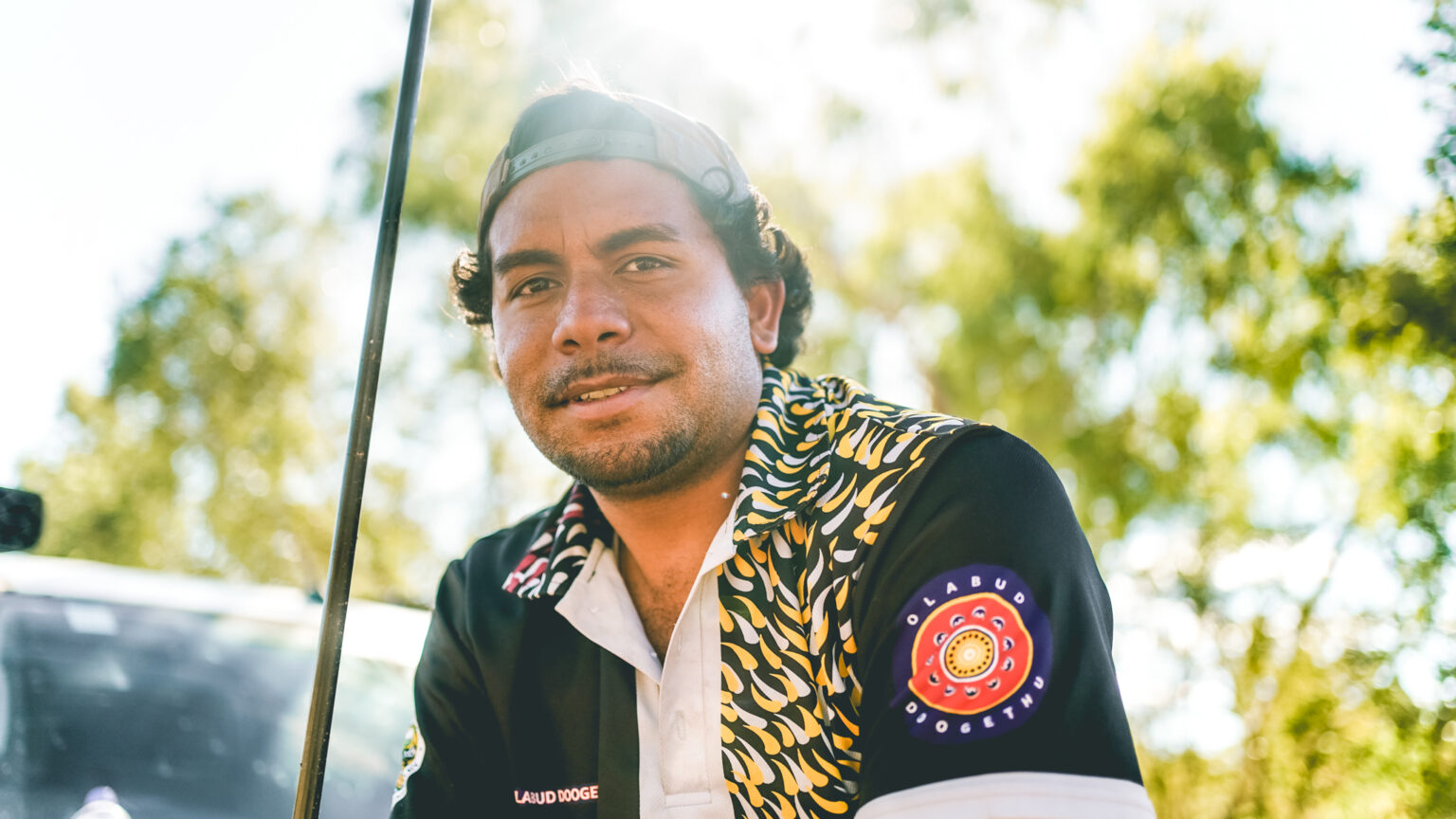Smart Justice in the Heart of Kimberley

Jesse Bradshaw, a proud Jaru and Bardi man, helps at-risk young people in Halls Creek as a Case Intervention Officer.
Can you please introduce yourself?
My name is Jesse Bradshaw and I’m a Case Intervention Officer. I joined Olabud Doogethu in January this year [2021].
For people who aren’t a part of Olabud Doogethu, can you talk about your role and what you do?
Well, I basically help young boys (aged 10-17) with one-on-one support and whatever they need or what is required from Department of Child Protection.
Can you talk broadly about the shared challenges that you have to deal with when working with the kids?
One of the biggest challenges I face is helping the kids create a routine for their own selves, like going home early, staying off the streets, supporting them to go to school more. I basically try and provide any support I can give them with the challenges that they find difficult for themselves. The work is pretty broad.
Talk to me about your average day to day work life. What does that look like?
In the morning, we meet up with the Olabud Doogethu Team. We’ll come up with a plan, and then go out and look for our clients – catching up with them, see what they need, help them out. Some days are quiet, some days are busy, it depends on how the clients are and if they’re in town. Some of our clients are out in communities or even in boarding schools.
How do the kids come to your team’s attention?
Some of the kids are referred to from Department of Child Protection, some of them from the Youth Engagement Night Officer crew, the police, or even referred directly from the community.
Can you talk about how it is working with different agencies and service providers?
We work regularly with the Department of Child Protection, depending on the kids. If they require any further assistance, we’ll probably meet up with them once a fortnight or once a week – depending on how much support the kid needs.
Can you talk about the biggest challenges the kids face in their lives?
I think one of the biggest challenges that the kids face is getting an education – getting kids engaged with schooling. I think if we can help them or encourage them to go to school more, it would be a big tick for them. Some of the kids have no interest in school. If the kids get into a better routine, they could get to school on time, focus at school and so on.
In the coming months, we’ll be launching the Mibala (‘us together’ in Kriol). Can you talk a bit about Mibala, what it’s about, and what does Mibala mean to you?
I think it’s going to be a good program. We’ll try to get the kids into a school routine. Get them learning in a different way and it might encourage them to go back to school. But it’s also good for us because they’ll have someone they know, they’ll be comfortable with us and they’d come to us wanting to be a part of Mibala learning.
The kids we’ll be working with are likely the kids that are totally detached from school. So we’ll just try and encourage them to get back into it slowly… try to get them to transition back into mainstream education through culture and Country.
The idea of Mibala focuses on using the strength of connection to culture and Country. Can you talk a bit about how connecting to culture and Country can help the kids?
Most of the kids here are too used to being in town… but it’ll be good for them to get out on to Country and learn from the old people while they can. They might come back with a different perspective on life. They probably won’t be stealing things if they proudly carry the knowledge of the bush and of the old people.
I think some kids have a connection to Country, but some of the kids who don’t have transport or don’t have support around them… but if they do have the chance, they’ll take that opportunity and reconnect. The main thing is transport, getting back on to Country. If there were any means of support to get back on to Country, they’d be out on Country now.